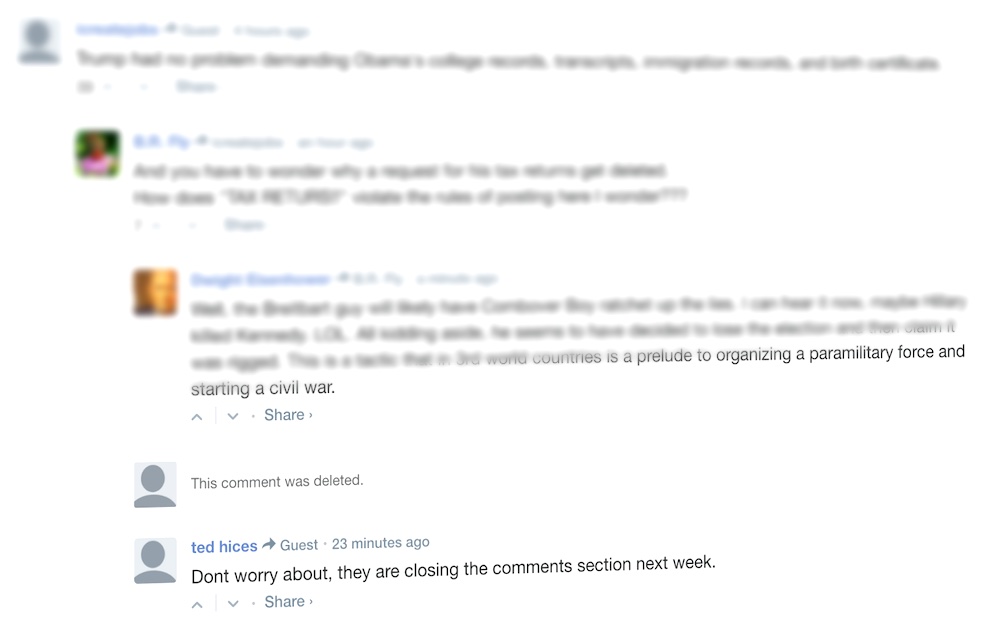
Significant stat on comment retirement: Only .003 percent of visitors posted even once a month over three months. https://t.co/CrmuDUcBsk
— Linda Holmes (@nprmonkeysee) August 17, 2016
Instead, NPR is turning to social channels — both official and through its journalists’ personal accounts — to interact with its audience. And that means pulling audiences into the usual places like Facebook (where it has more than 5 million likes), Twitter (more than 6 million followers), and building their Snapchat, Instagram, and Tumblr presences. In the post, managing editor for digital news Scott Montgomery highlighted NPR’s personal finance Facebook group, which now boasts more than 18,000 members. Other audience engagement efforts are also rendering comments sections less useful, Montgomery wrote. Among those:
We’ve taken our special engagement events to new levels with the Tiny Desk Contest and Generation Listen. This year’s Tiny Desk Contest received more than 6,000 entries and introduced the world to winner Gaelynn Lea. Meanwhile, our journalists regularly visit Generation Listen gatherings, connecting with the next generation of public radio fans at NPR Member Stations around the country.
We have an entire team devoted to Audience Relations, who read and personally respond to thousands of listener emails every month. This indispensable forum fields your most substantive feedback and questions and allows us space to provide equally substantive answers. Our help.npr.org site works across platforms and is always open for your questions and concerns.
In coming weeks, in addition to refining our live interaction approaches on Facebook, we’ll begin testing a promising new engagement tool that is rooted in public media. Hearken is a digital platform that allows journalists and the audience to partner on the development of story ideas and it’s already in use at dozens of NPR Member Stations. We will be bringing Hearken to our Goats and Soda blog on global health and development with the potential for expansion in the future.
NPR also has its own full-time ombudsman in Elizabeth Jensen, who helps address issues raised by listeners. Naturally, Jensen weighed in on the killing of the comments, anticipating some pushback around the fact that a public media organization was removing a channel of public input. NPR was using the outside platform Disqus, a system which got “more expensive the more comments that are posted, and in some months has cost NPR twice what was budgeted,” Jensen wrote. In other words, NPR was paying for a small group of people who were not necessarily representative of their audience:
Just 4,300 users posted about 145 comments apiece, or 67 percent of all NPR.org comments for the two months. More than half of all comments in May, June and July combined came from a mere 2,600 users.
It’s not possible to tell who those commenters are; some users comment anonymously. But there are some clues that indicate those who comment are not wholly representative of the overall NPR audience: They overwhelmingly comment via the desktop (younger users tend to find NPR.org via mobile), and a Google estimate suggested that the commenters were 83 percent male, while overall NPR.org users were just 52 percent male, Montgomery said.
NPR’s senior director for digital products Joel Sucherman also told Jensen that NPR.org readers will likely “see other new options over the next six to nine months.”
On Twitter, the news was greeted mostly positively, though some expressed concern about the increasing influence of social media platforms. The comments sections of Jensen’s and Montgomery’s posts, though, pretty much speak for themselves.
